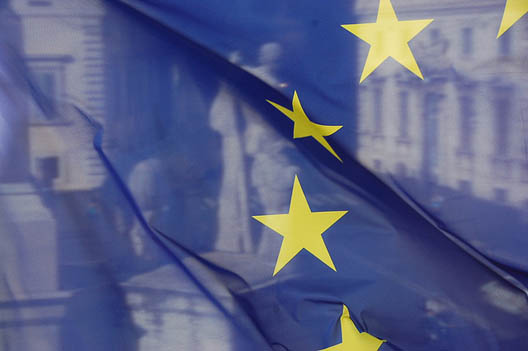 Now that Europeans have given more seats in their continental parliament to the far-right and far-left parties that want to significantly weaken the European Union, there will be some changes in Brussels, writes Damon Wilson in a posting today.
Now that Europeans have given more seats in their continental parliament to the far-right and far-left parties that want to significantly weaken the European Union, there will be some changes in Brussels, writes Damon Wilson in a posting today.
“Will the EU Vote Bury Foreign Policy?” asks Judy Dempsey, European affairs analyst at Carnegie Europe, inviting ten colleagues to respond. If the election doesn’t exactly bury foreign policy at the EU, it will “push … traditional foreign policy to the rear,” complicating its agenda and slowing its responsiveness, Wilson writes:
“First, these elections to a supranational entity have triggered domestic fights for political relevance and survival, pushing traditional foreign policy to the rear. Second, these elections foreshadow the EU itself becoming the leading target of these national debates, underscoring the EU as ‘foreign.’ Third, the European Parliament’s agenda will become more complicated as the growth of anti-EU parties will make forging majorities more difficult on the full range of issues, including foreign policy.”
Europe’s mainstream parties still hold the majority in the European parliament, and so the strengthened parties at the far right and far left “may therefore turn to disruptive legislative practices to ensure their voices are heard,” Wilson says. That might include “more muscular, disruptive oversight of the foreign policy work of the [European] Commission.”
But “most worrying is that significant anti-EU (pro-Moscow) factions within the parliament risk becoming a leading instrument of Vladimir Putin’s strategy to keep Europe divided, its institutions weak, and therefore ineffective in checking Russia’s influence,” Wilson writes. Pro-Russian action by the newly strengthened parties might include “undermining support for sanctions over Moscow’s intervention in Ukraine, or preventing decisive action to end Gazprom’s monopolistic behavior.”
Image: (Photo: Flickr/Waldopics/CC License)
